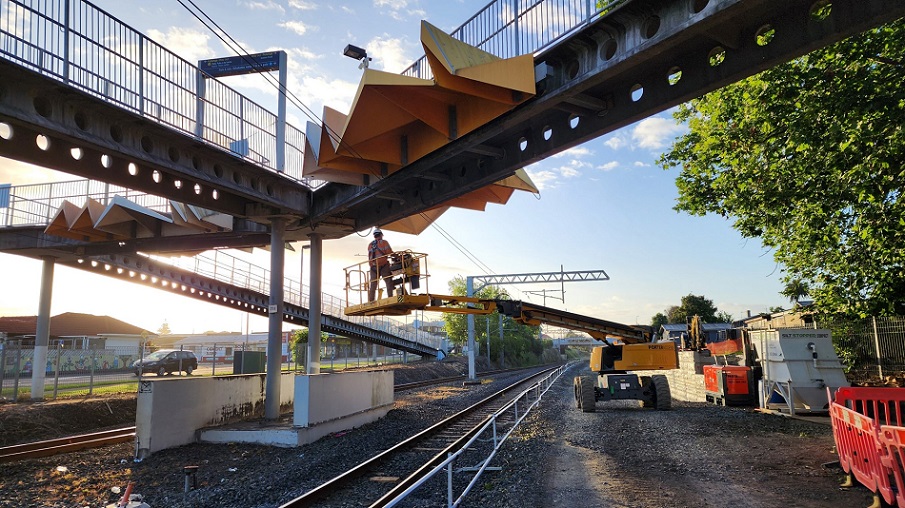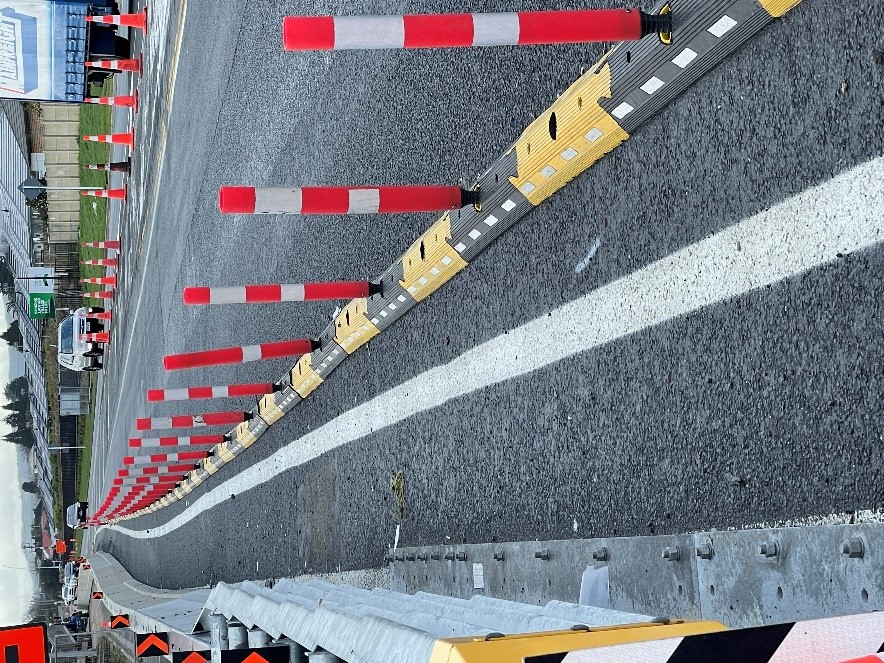Wiri to Quay Park
14/12/2022

Location: Auckland. Value: Approx $200 million. Duration: 3 years
Overview:
In 2020, KiwiRail awarded Downer the contract for Wiri to Quay Park ‘Third Main Line’ rail project (W2QP). The contract involves Downer undertaking all of the preparation works along the corridor prior to the installation of the new main. The purpose of the project is to improve the capacity and resilience of the Auckland rail network for both passengers and freight, and is comprised of four construction packages, Wiri and Westfield Junctions, Third Main installation (Puhinui to Middlemore), Middlemore Station and Quay Park Junction.
Package 1 has been completed and is valued at approximately $45 million, Package 2 is near completion, Package 4 is 65% completed and Package 3 is in the pre-construction phase and is still to be designed and priced, with a commencement date of mid 2023. Some of the works include bottom ballast construction, overhead line equipment foundations, carry services, drainage, platform extensions, overhead walkways, retaining wall construction, formation works and track realignment.
Challenge:
A significant challenge, specifically for Package 2 was that rail works were in a highly residential area, with properties bordering the corridor between Puhinui and Middlemore. Due to the lack of corridor space vs the space required to construct many of the retaining walls, KiwiRail had to enter into a number of acquisition agreements with property owners that allowed Downer to take possession of a section of private land during construction.
Another challenge was that many of the works could only be completed when passenger and freight trains weren’t running (BOL/blocks of line). An example of this was the demolition of Westfield Junction Footbridge, located at New Zealand's busiest rail yard, this took months of planning and detailed coordination with KiwiRail. Crews often had to work through the night to ensure sections of the track were completed, ready for use the next week.
The working space was also tight, particularly with large plant excavators, piling rigs graders) and vehicles (concrete trucks, haulage).
Solution:
Stakeholder engagement was crucial to Package 2, as we needed to access properties to set up temporary fencing sound mats, remove existing fencing and operate large, noisy machinery for weeks or sometimes months at a time. Dilapidation and noise monitoring surveys were also required on each property, to ensure consent condition compliance was met and any at risk structures from impacts vibration could be identified in advance.
By utilising BOL/night work we managed to install new overhead electrical pylons and foundations, bridge collision barriers, complete rail formation (track removal, upgrade and reinstatement) and carry out geo-technical investigations and surveys in two 24-hour days. All work was delivered safely and successfully to the agreed programme with KiwiRail.
All contractors were also required to complete relevant site inductions and training before carrying out work at KiwiRail sites.
Outcomes:
The W2QP project has shown the benefits of digital engineering innovation through the use of the Machine Avoidance System, a digital protection tool used to improve safety and productivity by creating a 'digital shield' or barrier, which prevents construction machinery like excavators from hitting hazards. Using this avoidance technology system has positively impacted productivity and safety and has played its part in the team receiving a Total Recordable Injury Frequency Rate (TRIFR) of two. The TRIFR is the rate of recordable injuries that occur per million hours worked.
Another great outcome is that even after two years and over a million hours of work, due to the strong stakeholder management, the relationships created between the project and its neighbours has remained positive.
Added Value:
A number of W2QP team members have been promoted over the past two years to more senior roles within the team. For example, Student Graduates to Site Engineers and Engineers to Project Managers. The project team have also been supported through a number of initiatives from staff development and training, as-well as mental health and wellness.
Contacts:
Bruce Cullen: 0272007248
Stuart Pilat: 021534075


Categories
Related articles
-
 19/04/2023
19/04/2023Reinforcing Winton's Asphalt: A Journey to Better Roads
Read more -
 01/03/2023
01/03/2023Ruby Bay Slip - Tasman
Read more -
 13/10/2022
13/10/2022Improving local connectivity with temporary cycle ways
Read more -
 12/07/2022
12/07/2022Realising value from an Early Contractor Involvement process: Downer Whitepaper
Read more -
 06/09/2021
06/09/2021Maintaining New Plymouth roads
Read more




